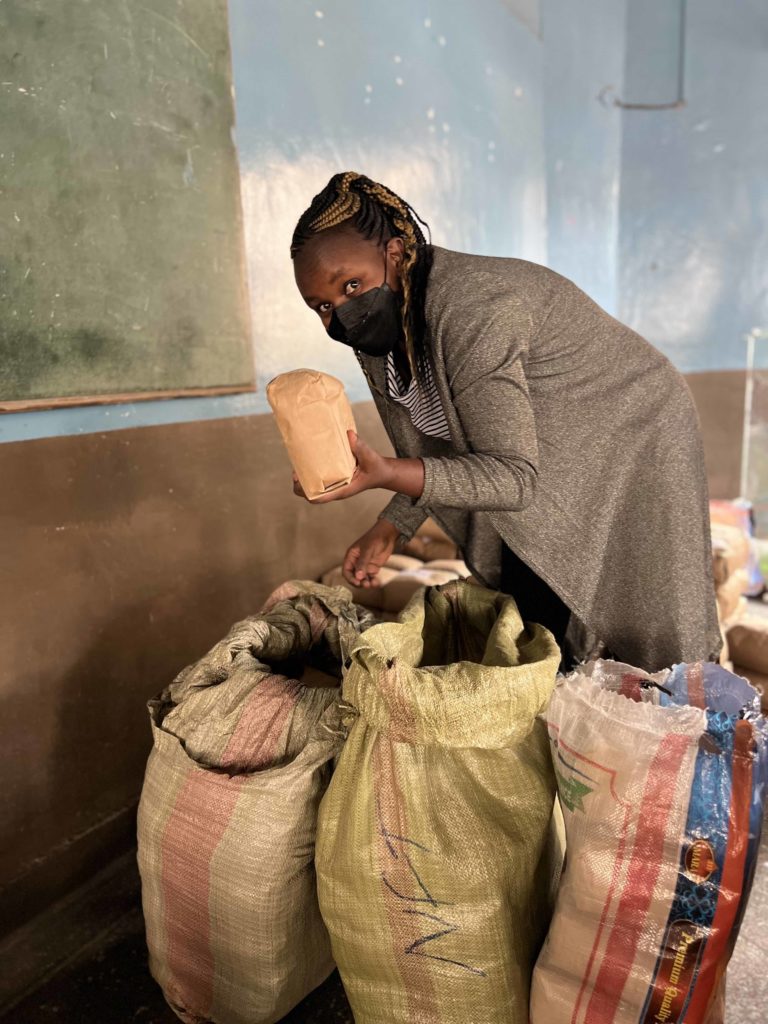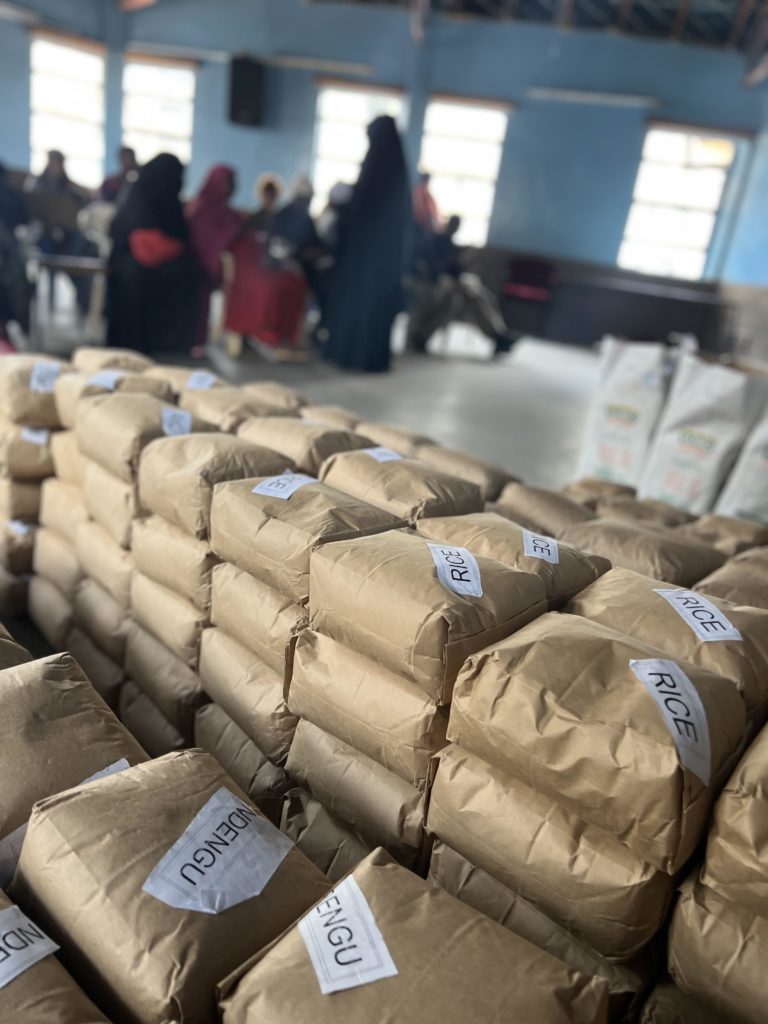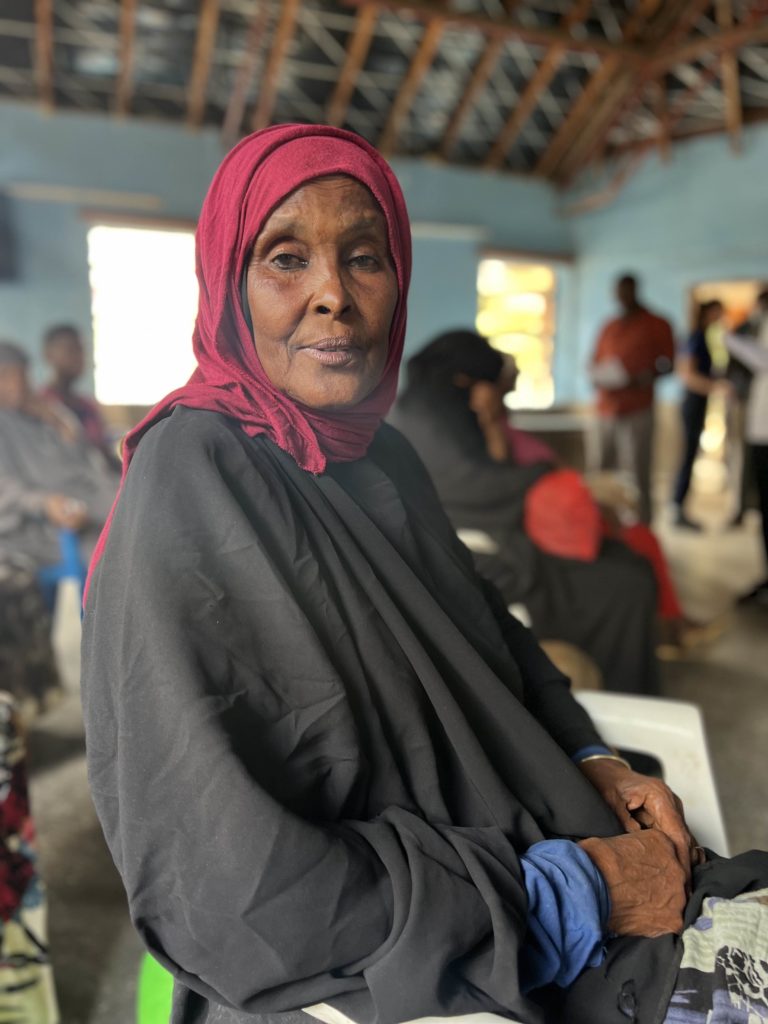As RefugePoint’s Chief Development Officer, in May I had the opportunity to visit our Urban Refugee Protection Program in Nairobi, Kenya. Early on in my trip, I was able to observe RefugePoint’s food distribution process in the Eastleigh neighborhood of Nairobi, Kenya. When I walked into the food distribution site, RefugePoint staff were busily preparing for refugee families to arrive. Eastleigh, also known informally as “little Mogadishu,” is home to a large concentration of refugees, primarily Somalis and Ethiopians. It is one of the seven locations where RefugePoint distributes food to core clients each month as part of our Urban Refugee Protection Program (URPP).
The room was bursting with activity: RefugePoint Case Managers, Community Navigators, Drivers, and the Programs Associate– everyone pitched in to unload the trucks and set up bags of food: rice, maize meal (used to make a local staple, ugali), beans, lentils, and oil.

Clients began to trickle in. One of the first was Hawo*. An older woman from Somalia, Hawo enthusiastically greeted staff—so happy to be there. When the Community Navigator that serves her neighborhood asked Hawo if she would be comfortable speaking with me, she leaped out of her seat to greet me.
Hawo was a portrait of dignity. When I look at this photo of her, I see her resilience and determination. She may seem fragile, but she threw a large bag of food onto her back with ease! She is strong – both physically and mentally.
In 2021, RefugePoint provided food assistance to 1,608 clients. Why do we distribute food to our clients? RefugePoint’s URPP supports refugees on a pathway to self-reliance, and the holistic, comprehensive case management approach is what sets us apart from many other programs. Our Community Navigators (refugees themselves) seek out the most at-risk refugees in Nairobi – including women, those with protection concerns, those with disabilities, and LGBTQIA refugees. When refugee clients are first identified, RefugePoint’s outreach team assesses their needs. Clients are asked about several different areas of their lives to determine what types of support are needed. The first step in the journey towards self-reliance focuses on stabilization – ensuring that clients are able to meet their basic needs. Often, new clients need support with food and rent, which RefugePoint provides until they can stabilize. Ensuring refugee clients have a roof over their head, food to eat, and access to mental health and psycho-social support, allows them to focus on livelihoods because they aren’t worried about where they will get their next meal. The monthly food distribution events are the primary means of facilitating this and also serve as an opportunity for Case Managers to check in with their clients.
*Name changed

